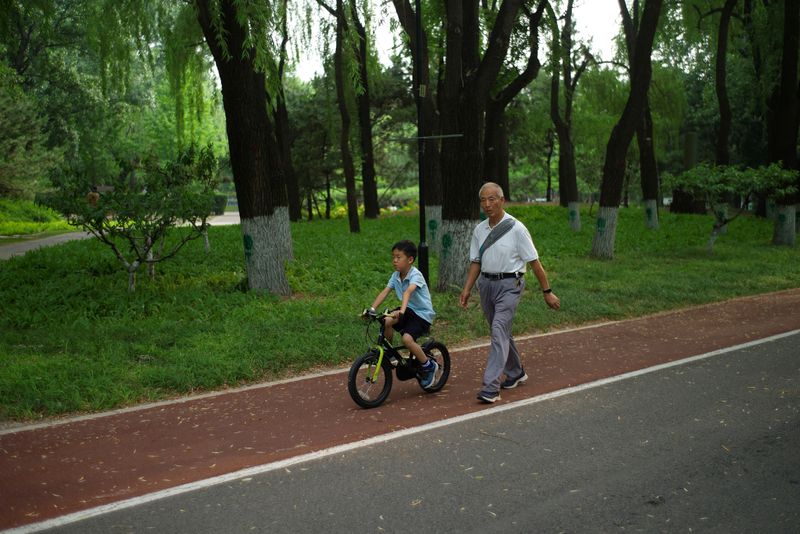China unveils plan to tackle growing dementia problem Reuters

HONG KONG (Reuters) – China has launched a national plan to tackle the rapidly rising prevalence of dementia, which authorities say is becoming a “widespread social concern” and poses “significant challenges” to the well-being of the elderly and their families.
Aging has become a growing problem in the world’s second-largest economy, with China’s cohort of over-60s expected to grow by at least 40% to more than 400 million by 2035, equivalent to the population of Britain and the United States combined.
Fifteen Chinese government departments, including the National Health Commission, have contributed to the plan to fight dementia. The proposal lists seven key tasks and goals to be achieved by 2030, the official Xinhua news agency reported on Saturday.
“With an aging population and an increasing average life expectancy, the number of people with senile dementia in China continues to rise, becoming a widespread social concern,” Xinhua said.
A continuous “dementia prevention and control system, covering prevention, screening, diagnosis, treatment, rehabilitation and care, will be established by 2030,” Xinhua said.
The growth of dementia will be controlled through widespread cognitive screening for older people, with early intervention guaranteed for those most at risk, it said.
In China, more than 16 million people suffer from dementia, including Alzheimer’s disease, the most common type, according to a 2024 official report.
The number of patients with dementia in the country accounts for almost 30% of the total number of patients in the world, it is stated.
The expansion of care services for elderly people with dementia is planned. Dementia care units should account for more than 50% of aged care facilities, while the number of trained dementia care staff is set to reach 15 million by 2030.




